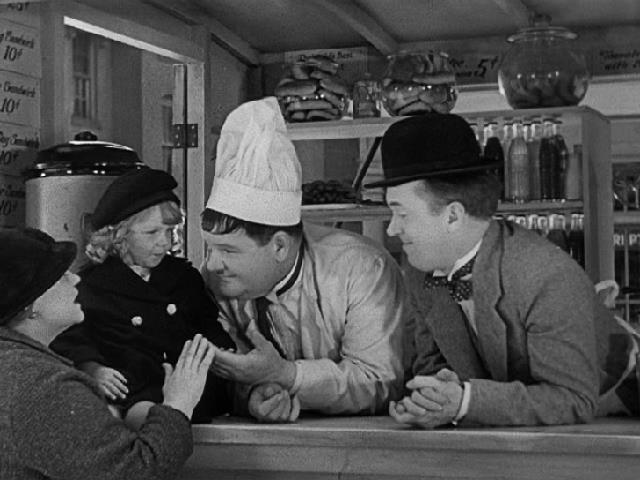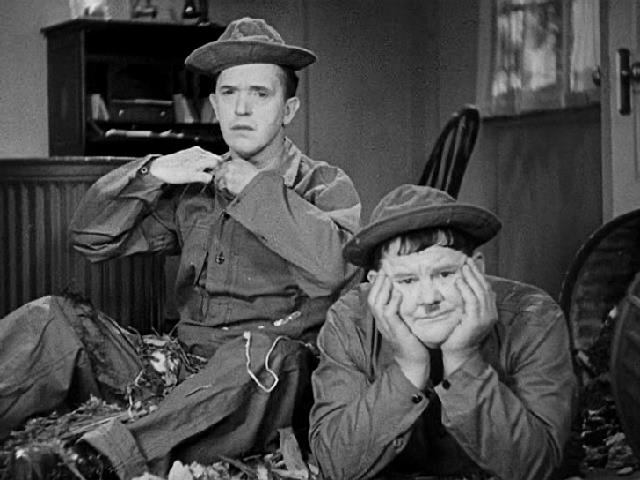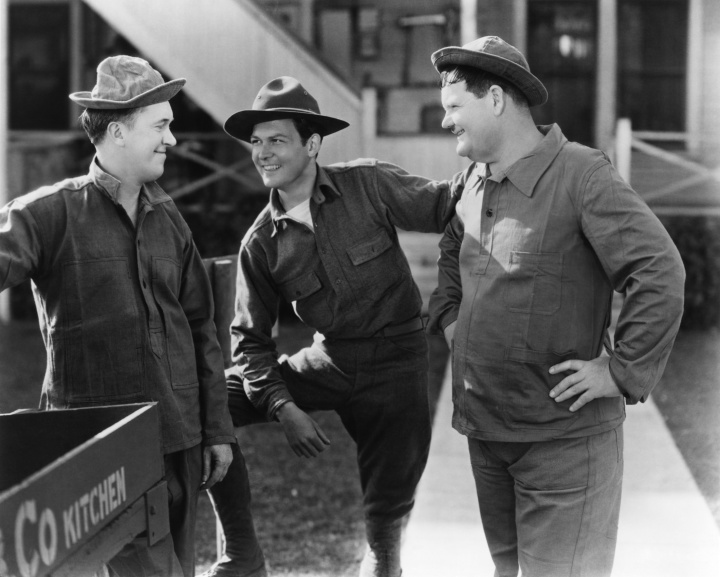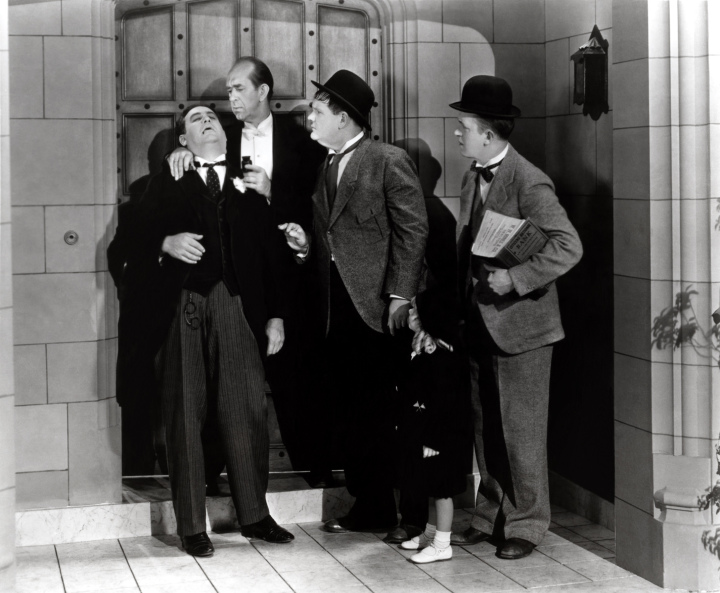While their short films comprise the best of Laurel and Hardy’s work, many people know the duo more for their feature films — mostly because they’ve been more frequently shown. Until recently, the shorts have been hard to find in consistently good — or even decent — copies. The features, however, have always been in the public eye thanks to TV exposure. Going into features was an inevitable development, if only because there was more money in them — and, for that matter, more prestige. By the mid-1930s — when Stan and Ollie quit making shorts altogether — the short film was losing its allure, though the form kept going for another 20 years, albeit in an ever diminishing capacity. The Laurel and Hardy features are undeniably a variable lot, and Pack Up Your Troubles is not generally thought of as one of their best. As noted, it plays like two-reelers that have been stitched together with the merest thread of a plot, but that plot ultimately works and holds the film together.
There are certain comedy sub-genres that seem inescapable. The circus film is one of the more common ones, but the service/war comedy is probably the most pervasive. I can’t think of a single comedian who escaped its clutches entirely — up to and including Bill Murray. Obviously, the concept has a basic appeal. It certainly has a basic approach — and it’s one that Stan and Ollie used here: the unwilling soldiers who are so obviously not cut out for military life that it seems incredible that the army didn’t just get rid of them early on. This basic template doesn’t mean that the gags don’t work or aren’t funny, but they’re rarely surprising. Some of the best bits here are in the smaller touches, such as Ollie, whose unit can’t even all face the same direction, blandly asking an already apoplectic drill instructor, “Why don’t you have us do like that?” upon spotting a perfectly trained group of soldiers passing. Most of the gags are very broad, but the fact is audiences like that sort of thing — in moderation, which is the case in Pack Up Your Troubles.
Of course, it follows that the boys will ultimately end up — quite accidentally — doing something heroic in the wake of their pal, Eddie Smith (Don Dillaway), being abducted (and apparently killed) by the Germans. Strangely, the film does nothing with this, however, and jumps straight to the end of the war, the return to America and the central situation of Eddie’s little girl (Jackie Lynn Dufton), who the boys have to first rescue from a particularly vile foster home. The idea then is to take her to her grandfather, which might be simple enough — except all they know is that the man’s name is Smith, and locating the right Mr. Smith in a big city — apparently New York — is another matter. Throw in a vengeful foster father (Richard Cramer), a nasty social worker (Charles Middleton) and the impossible quest and you have the rest of the movie, which is pretty much all vintage Laurel and Hardy. No Laurel and Hardy film — apart from their three big-budgeted operettas, The Devil’s Brother (1933), Babes in Toyland (1934), The Bohemian Girl (1936) — can be called particularly stylish. The direction is strictly functional — designed to have the gags play well, which is usually the case with comedies. Co-directors George Marshall and Raymond McCarey (Leo’s less talented little brother) keep it moving, and that’s all that can be asked of them, though Marshall does double duty by playing the roughneck army cook the boys tangle with early in the film.







Before you comment
The comments section is here to provide a platform for civil dialogue on the issues we face together as a local community. Xpress is committed to offering this platform for all voices, but when the tone of the discussion gets nasty or strays off topic, we believe many people choose not to participate. Xpress editors are determined to moderate comments to ensure a constructive interchange is maintained. All comments judged not to be in keeping with the spirit of civil discourse will be removed and repeat violators will be banned. See here for our terms of service. Thank you for being part of this effort to promote respectful discussion.